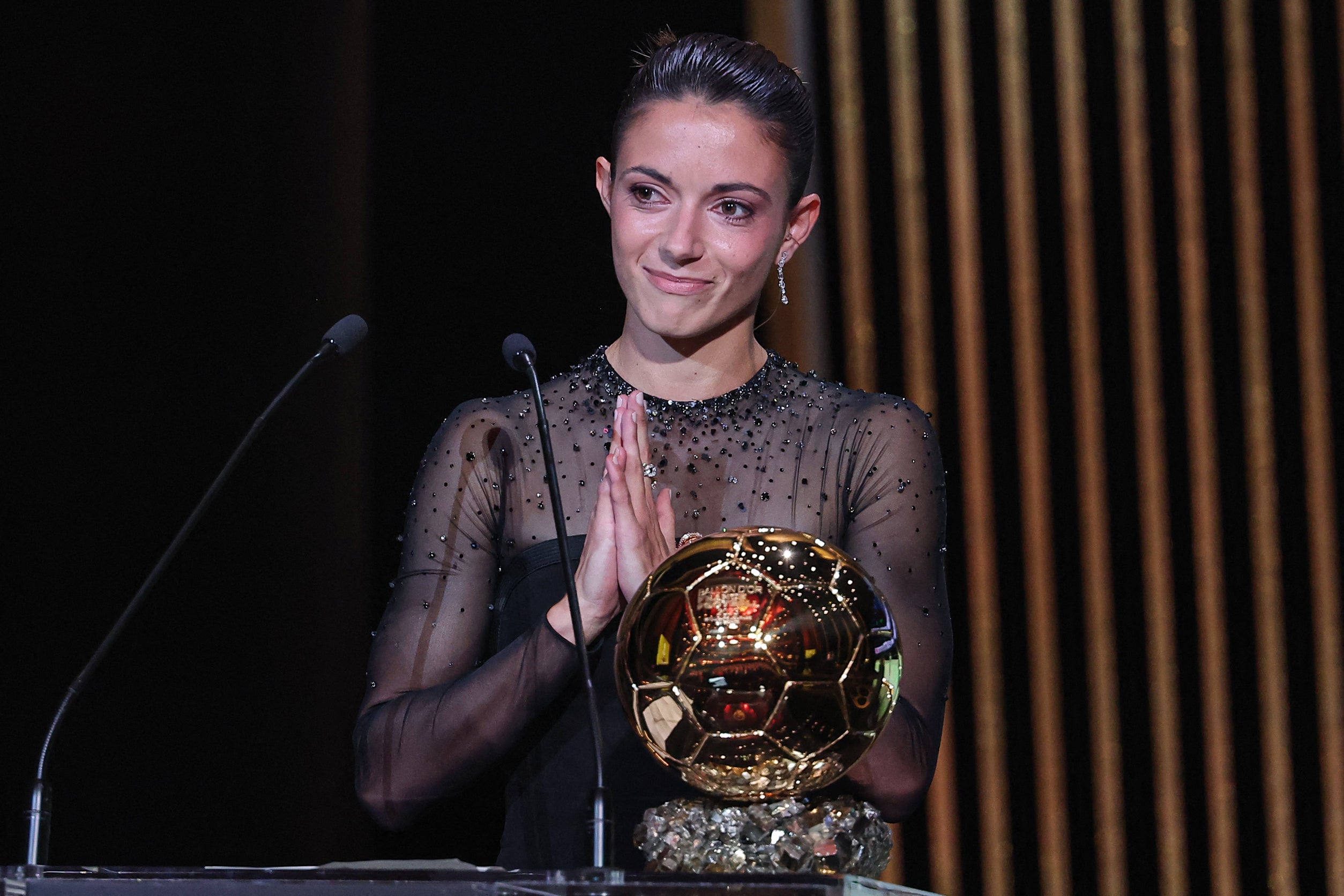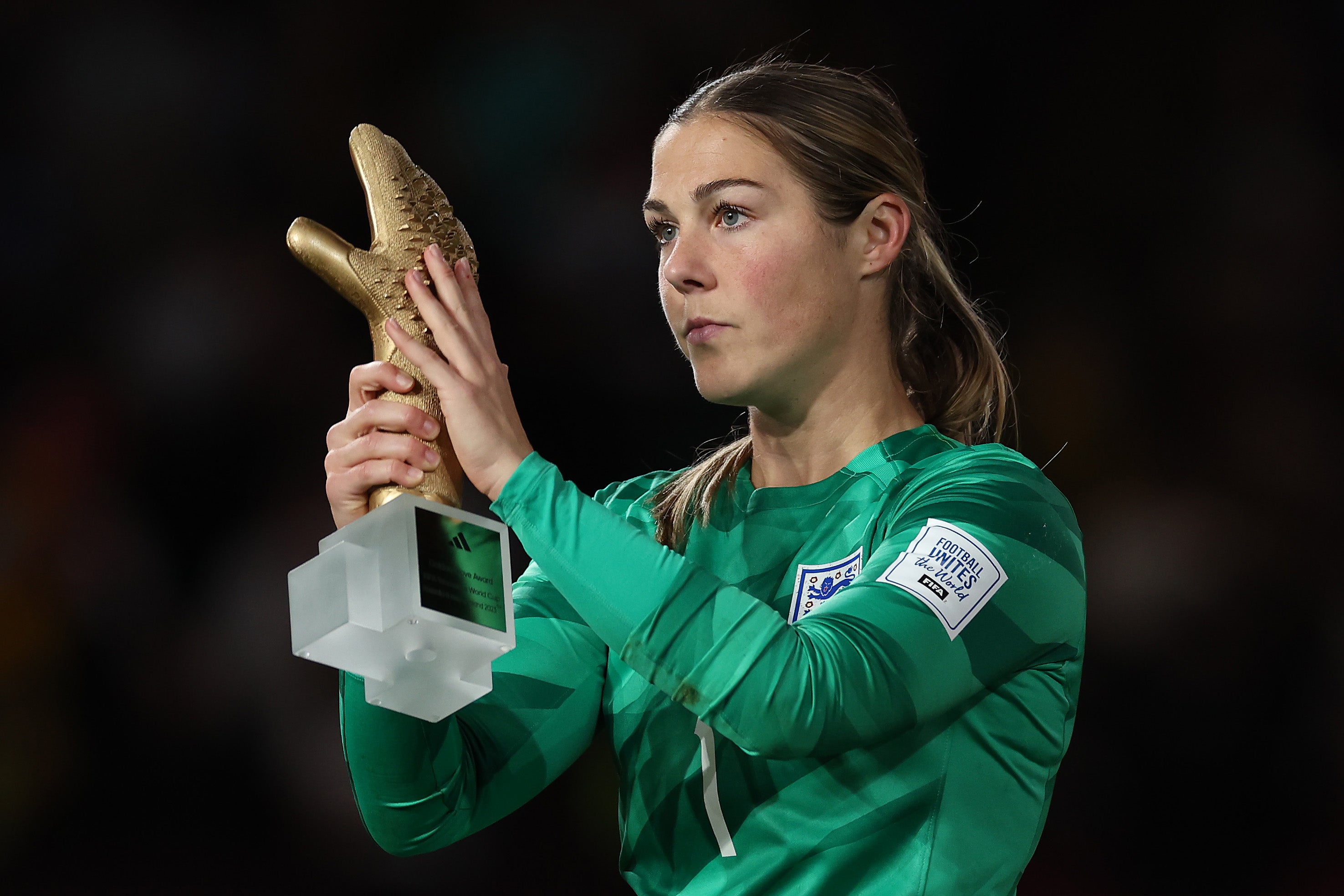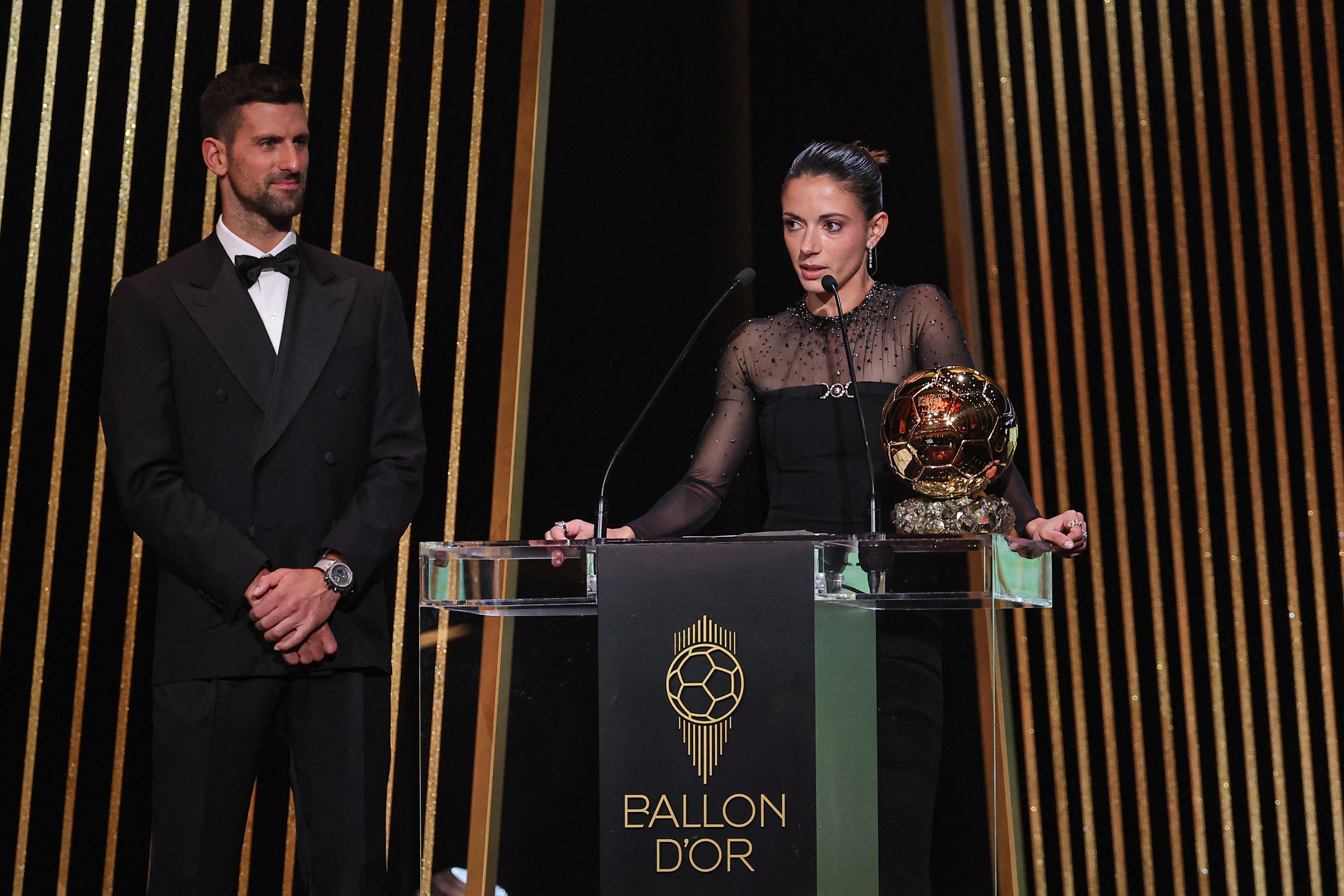Why the Ballon d’Or still doesn’t care about women’s football
Aitana Bonmati was the only women’s player to win an individual award and Novak Djokovic presented the main prize – so what message does that send about equality in football, asks Jamie Braidwood?


The show was always going to be about Lionel Messi. For the eighth and perhaps final time, the greatest player in the world won the Ballon d’Or, and in the glitz, glamour, and sparkly tuxedos of the Paris ceremony, there could be few who disagreed the night belonged to the Argentine after his World Cup-winning year.
The Ballon d’Or is more than that, though, or so it claimed at the beginning of the two-hour ceremony on Monday night. Host Didier Drogba declared the presentation would be a celebration of the best male and female players in the world. Yet apart from the outstanding Aitana Bonmati, the Spain and Barcelona midfielder who deservedly picked up her first Ballon d’Or award, the best women’s players in the world were barely recognised at all.
There were some improvements: Barcelona won Women’s Club of the Year, a new prize which honoured the European champions and treble winners, but throughout the evening were constant reminders that the Ballon d’Or did not care enough about the women’s game: you could start with scheduling the ceremony in the middle of a women’s international window, and on the eve of a busy night of fixtures in the Women’s Nations League.
That meant only eight nominated women’s players could attend the evening, compared to 19 stars from the men’s game. None of the four Lionesses shortlisted for the Ballon d’Or could be there because it clashed with England’s game against Belgium on Tuesday night. Georgia Stanway, nominated along with Rachel Daly, Millie Bright and Mary Earps, said it was disappointing to miss out. Earps – who finished fifth overall for the women’s Ballon d’Or – would have been forgiven if she used far stronger terms given the England goalkeeper was doubly overlooked.
After all, apart from Bonmati and her Barcelona teammates, there were no other prizes available for women’s players to win. Earps was the highest-ranked goalkeeper in the Ballon d’Or shortlist, but there was no equivalent of the Yashin Trophy that is awarded to the best men’s goalkeeper. While Emi Martinez picked up his award for heroics in a men’s World Cup final, there was no best goalkeeper prize for Earps in recognition of her display in a women’s World Cup final.

While Jude Bellingham won the Kopa Trophy for best young player, there was no award for Spain and Barcelona’s 19-year-old star Salma Paralluelo, who finished third overall. While Erling Haaland won the Gerd Muller Trophy for being the highest scorer in the men’s game, there was no honour for the highest scorer in the women’s game, or its outstanding striker Sam Kerr. And if there are those who say that time constraints are an issue in a two-hour ceremony, the Ballon d’Or found enough of that to show every one of Haaland’s 56 goals last season, and then chat to Gary Lineker about that time he presented Match of the Day in his underwear.
It was almost as if the best Women’s World Cup ever played did not take place this year. When it came to the main award, the Ballon d’Or Feminin, it was Novak Djokovic, bizarrely, who emerged onto stage to present the prize. When he reached the microphone, the men’s world No 1 tennis player, who is in the French capital this week for the Paris Masters, was asked about his favourite players and teams. Given the award Djokovic was presenting, it would have been nice to even pretend that the women’s game was considered in his answer.

But Djokovic was then asked about his ambitions to win a first Olympic gold medal in Paris next summer, creating a strange link to Bonmati’s richly-deserved moment. The Spain and Barcelona star, a mesmeric midfielder who was the best player at the World Cup and best player in the Women’s Champions League, was a worthy winner, aptly succeeding her teammate at club and country Alexia Putellas. But the fact that David Beckham, an “icon” of the sport, awarded Messi’s prize leads to the question of why a similar legend of the women’s game could not have been the one to pass the Ballon d’Or to Bonmati.
But Bonmati owned the stage with a humble speech, offering her genuine thanks to teammates at club and country, before turning to English to say players have a responsibility to “fight together for a better, peaceful and equal world”. After what Spain’s players have been through since the World Cup, the message felt fitting. The subsequent video package that brought to life the story of how a young girl from outside Barcelona, who didn’t really like football at first, went on to become the best player in the world was a touching and well-considered moment.
And it’s worth mentioning that it’s only five years ago that the first Ballon d’Or Feminin was awarded – the men’s Ballon d’Or has been running since 1956. Yet a historic night was marred when the inaugural winner Ada Hegerberg was asked if she knew how to twerk when on stage. Since then, the Ballon d’Or and its organisers France Football have evidently made improvements in how it recognises and celebrates the best women’s player in the world, but there is still a long way to go for the ceremony to show it values the whole game.
Because throughout the whole ceremony, Bonmati and her Barcelona teammate Patri Guijarro, upon collecting Barcelona’s club of the year prize, were the only women’s players who spoke or had their own moment. Then it was onto Messi and the men’s prize. In many ways, that was when the evening stopped pretending what the night was for all along.



Join our commenting forum
Join thought-provoking conversations, follow other Independent readers and see their replies
Comments